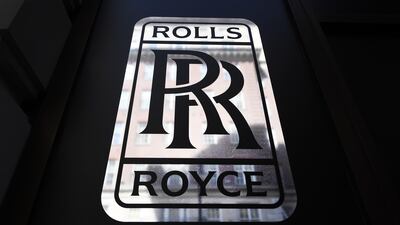Rolls-Royce, the UK's jet engine-maker, is cutting 17 per cent of its global workforce in order to reduce expenditure and ride out the Covid-19 crisis that has wiped out air travel demand.
The engineering giant will eliminate 9,000 jobs out of its total workforce of 52,000 and reorganise its business as the pandemic slowed demand for commercial plane engines and maintenance services, Rolls-Royce said on Wednesday.
The plan is expected to result in cost savings of £1.3 billion (Dh5.8bn) on an annualised basis, of which £700 million will come from shedding jobs.
"This is not a crisis of our making. But it is the crisis that we face and we must deal with it," said Warren East, Rolls-Royce's chief executive. "Our airline customers and airframe partners are having to adapt and so must we."
The company's move to execute mass layoffs is the latest blow to the aviation industry from the Covid-19 pandemic.
Rolls-Royce, which makes engines for widebody planes such as the Boeing 787 and Airbus A350, is shrinking its business to face a smaller commercial aerospace market after the virus is contained.
It is particularly vulnerable to the crisis as it focuses on engines powering large aircraft, which are expected to be less favoured by airlines when air travel resumes.
Rolls-Royce said it was "increasingly clear that activity in the commercial aerospace market will take several years to return to the levels seen just a few months ago".
The planned reorganisation it is undertaking in response to these changes will mainly affect its civil aerospace business, where it will carry out a detailed review of its facility footprint, it said.
The company did not specify in which of its sites the job cuts will be made, citing a need for discussions with employee and trade unions before providing a breakdown.
Rolls-Royce's defence business, based in the US and the UK, has been "robust" during the pandemic, with an unchanged outlook, and does not need headcount reductions, the company said.
"As part of the reorganisation, we will ensure that our internal Civil Aerospace supply chain continues to support our defence programmes and explore any opportunities to move people into our defence business," according to the statement.
The global aviation industry is facing the worst crisis in its history as lockdown measures aimed at containing the virus forced passenger travel to a near-standstill.
"We must respond to market conditions for the medium-term until the world of aviation is flying again at scale, and governments cannot replace sustainable customer demand that is simply not there," Mr East said.


